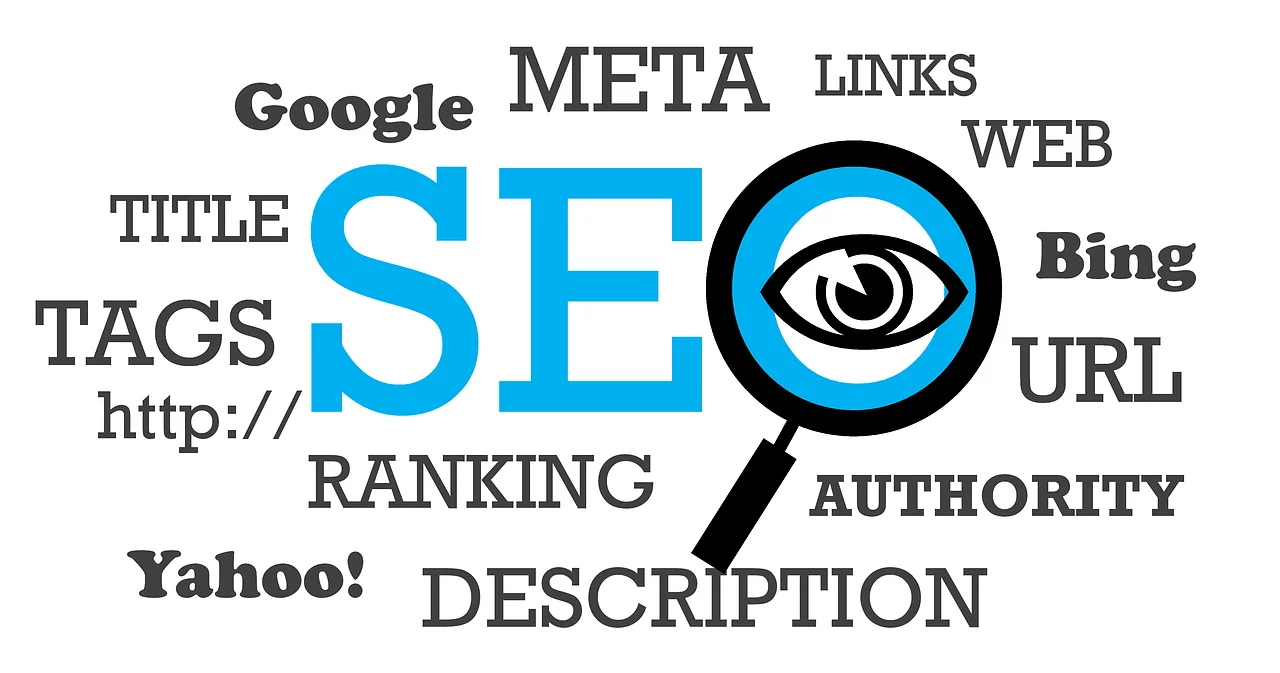Do you understand what a ‘website title’ is and why it matters? Basically, a website title, often referred to as a title tag, is an important part of the HTML code of a webpage that sets the title of the page. This title is usually shown at the top part of a browser’s window or tab. Additionally, it is also visible on search engine results pages (SERPs), where it serves as a clickable title. When creating a website title, it’s important to consider the keywords and phrases that are relevant to the content of the page, as this can impact search engine optimization. From Googlebot’s perspective on your website, the title tag helps search engines understand the context and relevance of the page’s content, ultimately affecting its visibility and ranking in search results. Therefore, crafting a compelling and descriptive website title is crucial for attracting online traffic and improving the overall performance of your website.
Grasping the concept of website titles is vital for individuals looking to optimize their web pages for search engines and improve user experience. An expertly-crafted website title is a tool to attract more search engine users, enhance web traffic, and elevate a web page’s ranking in search results. Conversely, a poorly constructed website title can damage a website’s visibility and credibility.
Key Points
- A website title, found in a webpage’s HTML code, is responsible for designating the page’s title.
- An effective website title can entice more clicks from search engine users, stimulate web traffic, and raise a webpage’s overall ranking in search results.
- Familiarizing oneself with website titles is critical for optimizing websites for search engines and fostering an improved user experience.
Delving Into Website Titles
Refer to this insightful video to help you understand how website titles work: Imagine Understanding Website Titles.
Website titles are decisive elements that outline a web page’s content. Displayed at the apex of a browser window, they are the first element seen by visitors on a website. Website titles, also known as title tags, meta titles, or page titles, reside in the head section of HTML code, and are visible in SERPs.
Definition and Significance
Your website title serves as a short, yet precise description of your webpage’s content. Visitors use this as a reference to gauge if your link is worth clicking. A well-crafted website title can draw more visitors, improve your click-through rates, and boost your search engine rankings.
For Search Engine Optimization (SEO), website titles carry importance. The algorithms that search engines utilize rely on website titles to determine the quality and relevance of a webpage. A reflective website title—true to its web page’s content—can drive visibility in search engine results.
Website Titles: Their Role in Search Engines
For each search result, search engines employ website titles as the primary headline; they are displayed as bold, hyperlinked text at the top of SERPs. Incorporation of relevant keywords into your website title improves its visibility in search engine results, potentially attracting more users.
Similarly, search engines utilize website titles to gauge the quality and relevance of a webpage. You risk damaging your website’s SEO if you stuff your titles with irrelevant keywords or adopt the same title for every webpage.
Best Practices for Website Titles
Refer to this handy video to guide you through creating effective website titles: Shaping Effective Website Titles.
For effective website titles, incorporate these best practices:
Keywords
The key component of website titles is the use of fitting keywords. This can bolster your website’s visibility in search results. However, be wary of keyword stuffing as it can detrimentally affect your search engine rankings. Focus instead on seamlessly integrating your keywords.
Length and Clarity
Maintain accuracy and brevity in your website title. It should clearly reflect your page’s content and leave out any unnecessary fluff. Bear in mind that your title should be no longer than 60 characters to ensure compatibility with search results and readability for users.
Inclusion of Brand Name
Follow the practice of incorporating your brand name into your website title. This aids in brand recognition and eases your user’s search journey. However, do not position your brand name as the primary focus of your website title. Instead, concentrate on designing distinct titles that subtly incorporate your brand name.
Remember, precision in the inclusion of keywords, conciseness, and the natural incorporation of your brand name into your website titles will make them both user-friendly and optimized for search engines.
Exploring Website Titles and SEO

Learn more about the role of website titles in SEO with this instructional video: Website Titles and SEO.
Website titles, or title tags, are integral to an effective SEO strategy. These clickable headlines found at the top of your website’s code serve as aids for search engines and users to comprehend the content of your webpage. This section will delve into the role of website titles in SEO.
Effect on Search Engine Rankings
Website titles assist search engine bots in understanding your webpage’s content. Optimizing your website title with applicable keywords enables search engines to categorize your page and enhances your SEO ranking. As SEO case studies maintain, well-optimized titles positively affect ranking on SERPs.
How to Prevent Keyword Cannibalization
When multiple pages on your website target the same keyword, you risk keyword cannibalization—an issue that confuses search engines and adversely affects your website’s SEO ranking. Prevent this by ensuring each page on your website has a unique title, thus aiding search engines in categorizing your pages correctly, and enhancing your website’s overall SEO ranking.
The Role of Meta Tags in Titles
Meta tags are HTML tags providing search engines with information about your webpage. They encompass meta descriptions, which summarize your webpage’s content, and meta keywords identifying the important keywords of your webpage. Factoring in the reduced importance of meta tags, they still aid search engines in understanding your website’s content.
Focus on including relevant keywords in your title tag for an effective website title, improving search engine rankings. However, refrain from keyword stuffing; overloading your website title with keywords could invite penalties from search engines and hinder your SEO ranking.
Implications of Website Titles on User Experience

Discover how you can leverage your website titles for a premium user experience in this helpful video: Enhancing User Experience with Website Titles.
In shaping the user experience, website titles play a pivotal role. Website titles, as HTML elements, represent the content of a webpage. Presented in browser tabs and used by search engines to decipher page content, consider the following ways in which website titles impact user experience:
Influence on Click-Through Rates (CTR)
Influencing the CTR from SERPs, good website titles improve CTR by accurately describing the page’s content, while poorly optimized titles could negatively impact CTR. Crafting clear, concise titles that genuinely reflect the page’s content is thus crucial.
Significance in Social Media Sharing
On social media platforms, when a user shares a link, the website title assumes the role of a headline. A compelling website title can encourage engagement and boost traffic to your website. Optimizing website titles for sharing on social platforms is a strategy worth considering.
Common Pitfalls to Evade
Avoid common mistakes when crafting website titles, as they can negatively impact user experience and organic traffic growth. These include:
- Repeating the same website title across multiple pages
- Keyword stuffing in website titles
- Creating vague or misleading website titles
- Overlooking the preview tool during the website title construction
Evading these pitfalls can enhance the user experience and drive more traffic to your site.
Exemplary Cases and Applications of Website Titles
Illustrative Examples of Effective Website Titles
Making the right selection of a website title is instrumental in boosting your website rankings and online presence. Here are a few exemplary website titles that can elevate your CTRs and SEO:
- “The Ultimate Guide to [Topic]” – Ideal for in-depth content offering comprehensive insights into a topic. This title sets the reader’s expectations and promises value.
- “[Number] Ways to [Achieve a Goal]” – Perfect for listicles and clear in communicating the reader’s benefiting from clicking through.
- “How to [Achieve a Goal] in [Timeframe]” – Ideal for instructive or educational content, promising a solution to a problem within a stipulated timeframe.
Case Studies Highlighting Title Optimization
Optimizing your website title significantly impacts your SEO rankings, fostering your online business growth. There is evidence of this in the following case studies:
- A Moz study revealed how a change in the title tag of a web page could lead to heightened search engine visibility, boosting CTRs and improving SERP rankings.
- In a study analyzing over a million Google search results, Backlinko found that websites with optimized titles were likely to rank higher on SERPs.
- Ahrefs detailed a case where modifying a blog post’s title from a question to a statement led to a 33% boost in organic traffic, demonstrating the need to align with your target audience’s search query when creating titles.
In conclusion, optimizing website titles is key for improving SEO rankings, boosting CTRs, and fostering your online business’s growth. Ensure that your website titles are optimized for social media sharing, are capitalized correctly, and resonate with your target audience by including your focus keyword. Steering clear of duplicate web page titles is also crucial for optimization effectiveness. A well-composed website title will enhance your online presence, boost your SEO rankings, and monetize your blogging efforts.
Frequently Asked Questions
How is a website title chosen?
Choosing a website title may seem daunting initially, but it merely involves selecting a title that accurately echoes the content of the webpage. Look for a title that is descriptive, brief, and keyword-rich. Remember to make it unique and memorable.
What differentiates a website title from an article title?
While a website title (or title tag) appears at the peak of a web browser or in search results, an article title figures at the start of an individual article or blog post. The former covers the content of the entire website, while the latter is specific to an article’s content.
Why is a website title needed?
A website title is instrumental in guiding users and search engines to understand the website’s content at a glance even before they click on the link. Search engines use website titles to match relevance with corresponding search queries.
How can the title of a website be found?
Besides its appearance at the top of the web browser, a website title is also displayed in search engine results. An alternate way to find the title would be to inspect the website’s source code for the title tag.
How is a website title formatted in APA?
The APA style requires that the first letter of the first word, the first letter after colons or dashes, and any proper nouns in a website title be capitalized. All other letters should be in lower case, except for acronyms, which remain in capital letters.
Why does SEO deem the website title as important?
Website titles are pivotal for SEO as search engines use these to correlate relevance to specific search queries. A website title which is an accurate reflection of the website content and includes relevant keywords can improve the website’s SEO ranking.

